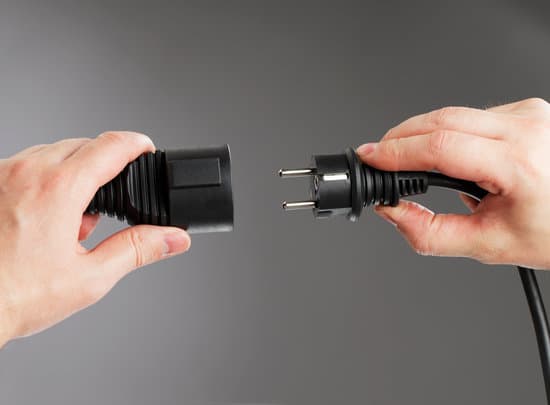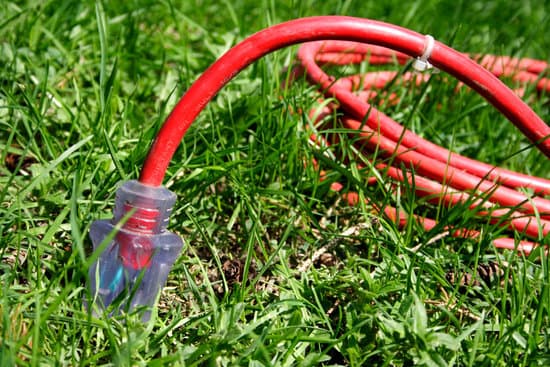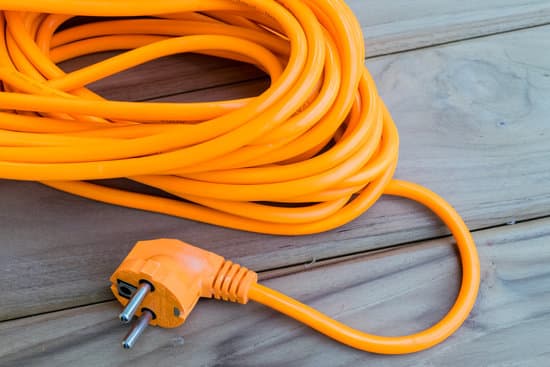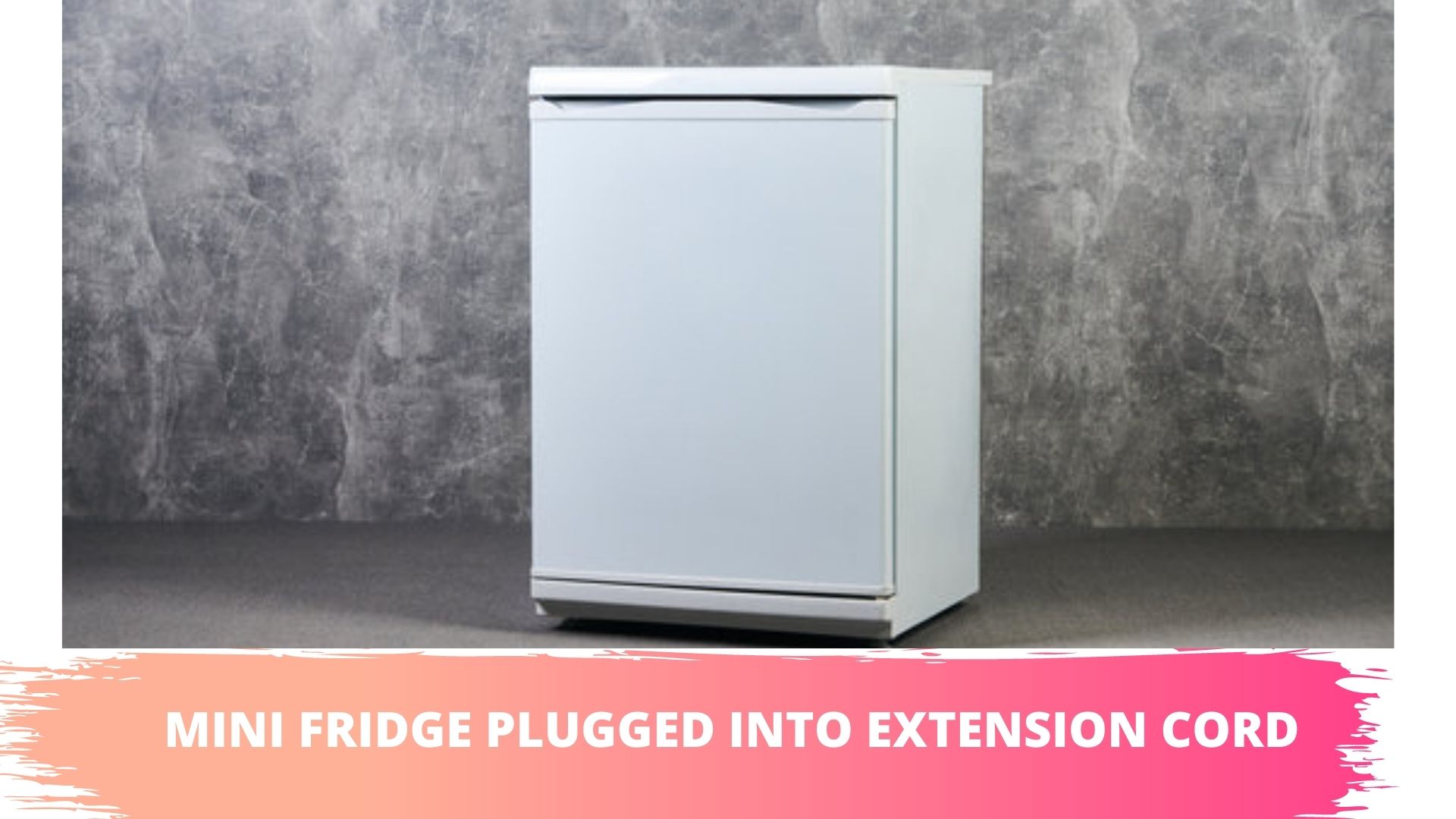Common sense suggests that you cannot plug a refrigerator into an extension cord. But how about a mini-fridge? Most people believe that a mini fridge is safer because it doesn’t draw as much power as an ordinary refrigerator.
Can a Mini Fridge Be Plugged Into An Extension Cord?
Mini fridges are less of an issue because they do not draw as much power as ordinary fridges. The average mini-fridge is compatible with 15-amp circuits because its draw rarely exceeds 12 amps. If you have the right cord with the right gauge, it will safely carry the current the mini-fridge needs.
A mini-fridge isn’t as hazardous where extension cords are concerned. However, the type of extension cord matters. You have to take into account the gauge, length, and amperage rating.
If you plug your mini-fridge into the wrong extension cord, you will suffer the same consequences that you would encounter if you plugged a refrigerator into the wrong extension cord. It is worth noting that people plug refrigerators into extension cords all the time without suffering any significant side-effects.
The key is to apply caution.
As you can see, it all boils down to the type of extension cord. You should always match the rating of the extension cord to the electrical draw of the mini-fridge.
Many of these appliances have tags on the compressor that will tell you the amount of power they are supposed to draw. Once you identify this figure, it won’t take you long to locate an extension cord that can match it.
Why Use an Extension Cord For a Mini Fridge?
This is normally an issue of convenience. People use extension cords because the wall outlet is either too far away or they already have appliances plugged into it. Not only does an extension cord bring an outlet closer to the mini-fridge but it provides additional outlets, allowing you to connect multiple appliances at once.

While you can safely plug your mini-fridge into an extension cord of the right gauge, this shouldn’t be a permanent solution.
Extension cords are supposed to be temporary answers.
Eventually, you are expected to either install more wall outlets or to move the mini-fridge closer to a wall outlet.
Best Extension Cord For Mini Fridge
As you now know, you should always pair your mini-fridge with the right extension cord. But there are so many extension cords on the market. How do you choose the best one? The key is to focus on their attributes.
Rather than obsessing over the brand, you need to know what to look for in a good extension cord. You can find decent extension cords in any brand and price range if you know the characteristics to prioritize. Pay close attention to the following:
1). Grounding

You need a grounded extension cord, one whose plug has three prongs. The grounded plug of a mini-fridge needs an extension cord whose plug is also grounded. The grounding provides added protection, particularly in situations where the extension cord isn’t compatible with the electrical needs of the mini-fridge.
2). Gauge
The gauge refers to the size of an extension cord’s conductors. It indicates the diameter of the conductors. It also determines the amount of power they can carry. The gauge is a little odd. This is because it is defined using numbers, and the smaller the number, the larger the gauge.
For instance, a 14-gauge conductor is smaller than a 12-gauge conductor even though the number 12 is smaller than the number 14.
Make sure the gauge of your chosen extension cord is big enough to accommodate the power the mini-fridge needs.
3). Rating
How much current can the extension cord safely carry? This is the answer the rating will provide. The amps a mini-fridge needs to operate efficiently should match the amperage rating of the extension cord.
If the extension cord’s amperage rating is lower than the load of the mini-fridge, the appliance will overload the extension cord.
4). Distance/Length
According to Menards,
The distance is very important because it affects the length of the extension cord.
Electricity encounters resistance whenever it travels through conductors. This resistance causes the voltage to drop. The greater the distance the electricity has to travel, the bigger the voltage drop.
- If your mini-fridge is near the outlet, you need a shorter extension cord that isn’t prone to significant voltage drops.
- If the mini-fridge is far away, it isn’t enough to secure a long extension cord.
- If the cord is too long, the voltage drop will prevent it from delivering the power the mini-fridge needs.
Where large distances are concerned, you need heavy-duty cords with a large gauge that can compensate for the voltage drop.
As you can see, it isn’t a simple matter of picking the right brand.
If you want to find the best extension cord for a mini-fridge, you need to find a grounded model with the right amperage rating and gauge for the distance you want to cover.
With these all considered, I have found the extension cord by S7 to be the best!
It is a 50ft long, heavy-duty, 10 gauge grounded extension cord that you can rely upon to extend your short fridge cord. If you are interested, you can check out the price here.
What Gauge Extension Cord For Mini Refrigerator?
14-gauge extension cords can work with normal refrigerators. This makes them suitable for mini-fridges. Though, if you want to be on the safe side, you are better off using 12 or even 10-gauge extension cords.
With appliances like fridges, you cannot afford to take any chances. You need the strongest extension cord possible to prevent disasters such as overheating, fires, and electrocutions. A 14-gauge extension cord should do.
Is it safe to plug the fridge into an extension cord?
You cannot plug a fridge into an extension cord. The average fridge draws too much power. Your refrigerator will overload conventional extension cords and power strips. This is why manufacturers encourage homeowners to plug fridges directly into a wall outlet.

The fridge isn’t the only appliance that is incompatible with power strips and extension cords. Other problematic devices include slow cookers, space heaters, and microwaves, to mention but a few.
What Happens When You Plug a Fridge into an Extension Cord?
People think that the only downside to plugging a fridge into an extension cord is a tripped breaker. But they are wrong. Yes, if the power requirements of your fridge exceed the rating of your extension cord, you will trip the breaker. But that is the least of your concerns:
1). Functionality
Amana believes that the use of extension cords and power strips can create power supply issues, that is to say, it may prevent the appliance from receiving the power it needs to run. As a result, the fridge won’t keep its contents cool.
Don’t assume that a fridge you plugged into an extension cord is fine simply because it hasn’t tripped any breakers. The chances that it isn’t even working are quite high.
2). Fire

This is one of the biggest concerns. If the extension cord cannot carry the load of the fridge, the cord will eventually heat up. If it melts, a fire may start, endangering your property and the lives of the people that live with you.
3). Wear and Tear
The use of an extension cord may reduce the lifespan of your fridge. Fridge compressors are sensitive. They do not appreciate power fluctuations. The motors will also suffer if a poor extension cord fails to give them the voltage they need to start. All in all, an extension cord isn’t a good idea where refrigerators are concerned. The risk is too great.
Is There A Way To Safely Plug A Fridge Into an Extension Cord?
Most manuals will discourage you from plugging a fridge into an extension cord. But if you are forced to do so, you have to keep two factors in mind:
1). Rating
A heavy-duty cord with the right rating can meet the power requirements of your fridge without causing any harm. This is the only safe way to use an extension cord.
If the cord in question has the capacity to carry the current utilized by the fridge, you don’t have to worry about fires and malfunctions. Things only go wrong when the capacity of the cord is too small to carry the current the fridge needs.
2). Prongs
You need a grounded extension cord, the kind that has three prongs.
Home Steady doesn’t want anyone to plug a fridge into an extension cord that hasn’t been grounded.
You are also discouraged from removing the third prong because you want the plug to fit a particular outlet.
If you have a heavy-duty cord with the appropriate amperage rating and grounding, it can safely accommodate your fridge.
Conclusion
A fridge is a powerful machine that draws too much power. If you plug it into an extension cord, you could start a fire. If the extension cord fails to transfer the current in the quantities the fridge needs, you could damage sensitive components like the compressor and motor.
Mini-fridges are less powerful. They don’t have as big of a draw as ordinary refrigerators. Like a fridge, you can plug a mini-fridge into an extension cord if that extension cord has the right gauge and amperage rating.

